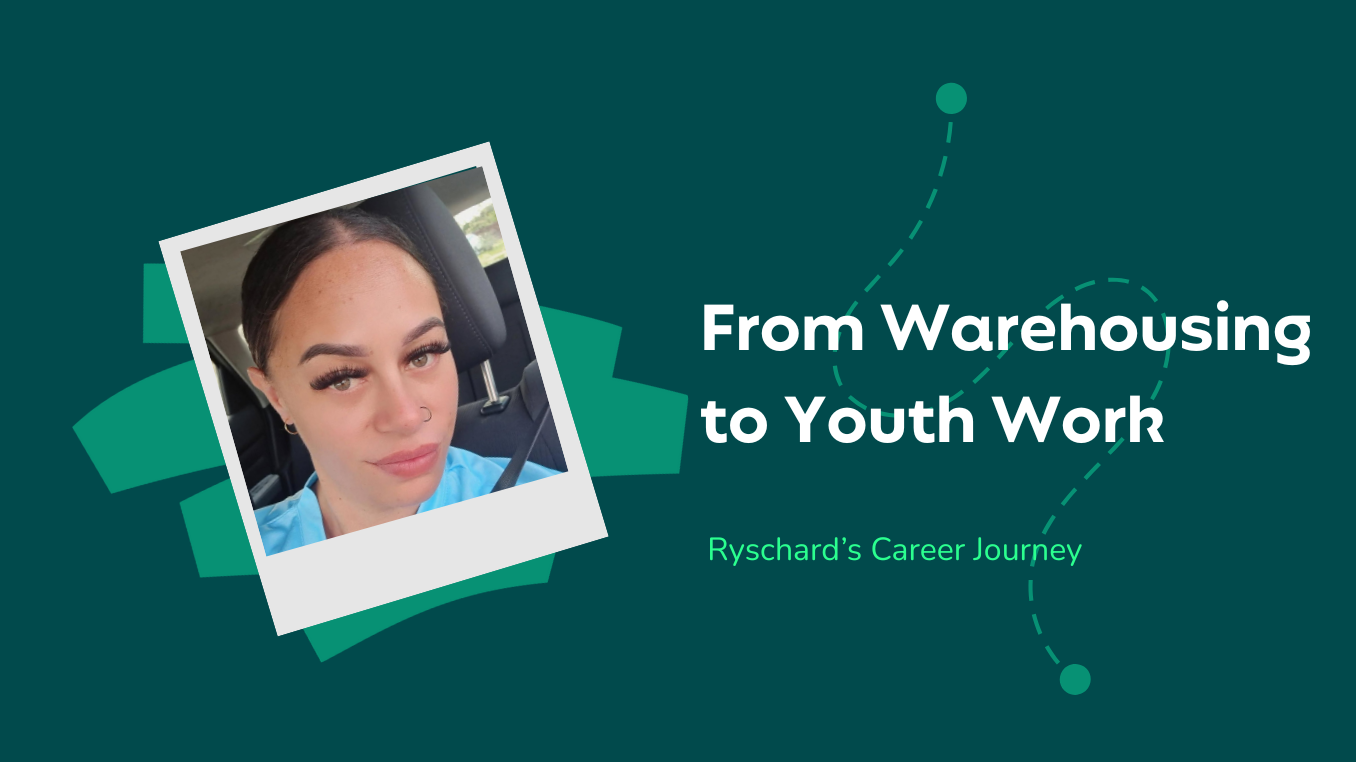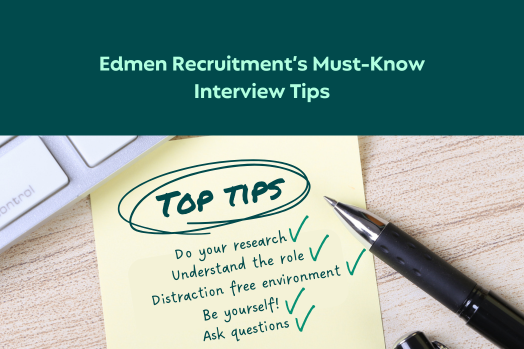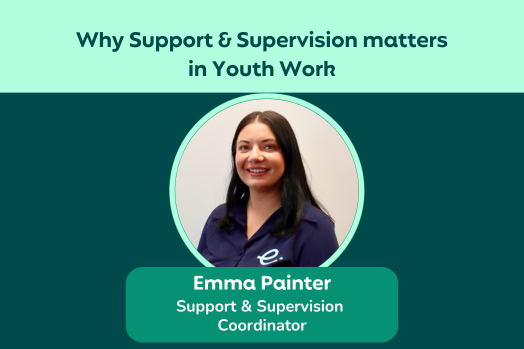Blog


One way we care for our team is by offering access to the PsycHealth Wellbeing App, a self-guided resource designed to promote mental well-being. This tool provides our staff with evidence-based strategies they can use anytime, anywhere, ensuring they have support tailored to their unique challenges.

If you're passionate about making a difference in the lives of young people, a Certificate IV in Youth Work (CHC40421) is a great place to start. This nationally recognised qualification gives you the practical skills and knowledge needed to support young people at risk, work in residential care settings and build a rewarding career in the community services sector. In this guide, we break down everything you need to know about studying a Cert IV in Youth Work in 2025. Where Can I Study? There are dozens of registered training organisations (RTOs) offering this course, both in-person and online, so it’s important to choose one that suits your lifestyle, learning style and career goals. One of Edmen’s trusted training partners is DaV’ange Training - a nationally accredited provider that delivers a Certificate IV in Youth Work with a strong focus on real-world outcomes. Through our partnership with DaV’ange, students gain industry-aligned training and may have direct opportunities to transition into work with Edmen. Top tips when choosing a provider: Make sure the course is accredited by the Australian Skills Quality Authority (ASQA). Look for real-world placement opportunities - these are essential for hands-on experience. Check student reviews on mySkills and CompareEd . Choose a provider that offers flexibility if you’re balancing study with work or family life. If you’re looking for a quality course that’s closely aligned with job opportunities in youth work, DaV’ange Training is a great place to start. How Much Does It Cost? The cost of a Cert IV in Youth Work varies depending on the provider and your location, typically ranging from $2,000 to $7,000. But here’s the good news: government funding and fee-free training are available in many states for eligible students. 2025 Fee-Free Training Opportunities: Queensland Fee-Free TAFE QLD South Australia TAFE SA Fee-Free Courses New South Wales TAFE NSW Fee-Free Courses Make sure to check your state government’s training website for up-to-date info on eligibility, funding and how to apply. How Long Does It Take? The course typically takes: 12 months full-time, or 18–24 months part-time Some providers also offer blended or online delivery, which can be a great option if you need extra flexibility. Can I Start Working While I Study? Yes! In fact, Edmen hires youth workers who are still completing their Cert IV—especially if you're enrolled and already gaining placement experience. Through our Kickstart program , we even pay eligible students for their placement hours, helping them earn while they learn. It’s a game-changer for students wanting to gain industry experience while studying. If you’re studying with one of our preferred partners like DaV’ange Training, you may also have access to tailored support and a smoother path into work with Edmen. 🔍 Explore our current youth work roles here: View Jobs at Edmen Studying a Certificate IV in Youth Work in 2025 can open the door to a deeply meaningful and purpose-driven career. With the right training provider, access to government support, and potential to start working while you study - there’s never been a better time to get started. Take your first step toward changing lives - starting with your own. Got questions about how to get started or whether you can work while studying? Our recruitment team can help point you in the right direction.

If you’re passionate about helping others and want to make a real difference in your community, a Certificate III in Individual Support (Disability) is a great place to start. This nationally recognised qualification gives you the skills, confidence and hands-on experience to support people with a disability to live safely and independently - and with choice and dignity. It’s also a fantastic pathway into a rewarding, flexible and fast-growing career. Why Disability Support work? With the continued rollout of the National Disability Insurance Scheme (NDIS), the demand for qualified disability support workers is at an all-time high - and it’s only expected to grow. In fact, the NDIS National Workforce Plan forecasts that the disability support workforce will need to grow by approximately 83,000 workers by 2025 to meet demand. That’s a significant increase and a strong signal that there are plenty of job opportunities for people looking to enter the sector. If you're looking for meaningful work that truly impacts people's lives, now is the time to make the leap. What will you learn? The Certificate III in Individual Support (Disability) combines classroom or online learning with on-the-job practical experience. It gives you the tools to feel confident supporting people in their homes or out in the community. You’ll cover topics such as: Supporting independence : Learn how to assist people in achieving their personal goals and living the life they choose. Understanding different disabilities : Get insight into physical, intellectual and psychosocial disabilities and how to tailor your support. Communication skills : Build your ability to communicate respectfully and clearly with people with diverse needs. Working safely and ethically : Know your responsibilities around duty of care, privacy, dignity and working within legal frameworks. Personal care : Learn how to safely support daily tasks like showering, dressing and mobility. Working in teams : Develop the skills to work effectively with colleagues, allied health professionals and families. How long does it take? Most students complete the course in 6 to 18 months, depending on whether you study full-time, part-time or online. Some providers even offer flexible study options if you’re balancing other responsibilities like work or parenting. Will I get hands-on experience? Yes! One of the most valuable parts of the course is your practical placement. This is where you apply your knowledge in a real-world setting and gain firsthand experience working with people with disability. At Edmen, we understand that gaining placement can be tricky, so we’ve created the Kickstart Program . It allows eligible students to get paid while completing their placement, with real shifts that count towards your required hours. It’s the perfect way to earn, learn and build your confidence on the job. What do I need to enrol? Generally, to enrol in a Cert III Disability course, you’ll need to: Have completed Year 10 or equivalent Be at least 17 years old (some providers may vary) Have or be willing to obtain: A current National Police Check An NDIS Worker Screening Check A valid Working with Children Check (depending on your placement setting) Up-to-date immunisations (depending on provider) How much does it cost? The good news is that many state governments offer free or low-cost places for eligible students. This means you might be able to study without paying full fees - especially if you’re not working or are looking to change careers. Check out what’s available in your state through your local TAFE or registered training provider (RTO). Where can I study? The Cert III in Disability is offered through: TAFEs across Australia Private RTOs Online learning providers Not sure where to start? Try these sites to compare options: www.myskills.gov.au www.courseseeker.edu.au www.compared.edu.au Do I need to finish before I start working? Not always. At Edmen, we hire passionate people who are working toward their qualifications - especially if they’re already enrolled in a course and eager to gain experience. If you’re just starting out, check out our entry-level casual roles, where you can build your hours, learn from experienced mentors and take advantage of our flexible shifts while you study. 👉 See open positions with Edmen Studying a Cert III in Disability is more than just a course - it’s the first step into a meaningful, people-focused career. With strong job prospects, flexible work and the chance to make a difference every day, it’s no wonder so many Edmen support workers started their journey right here. Whether you’re ready to enrol or just curious to learn more, Edmen can support you on your path. Got questions about how to get started or whether you can work while studying? We’re here to help.
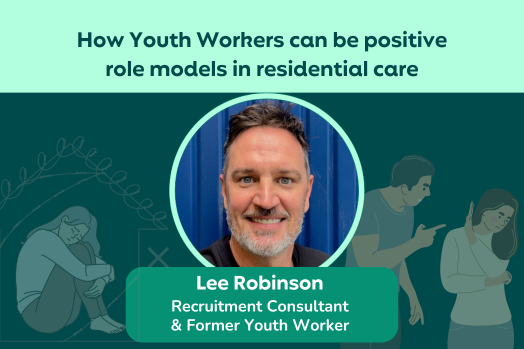
By Lee Robinson, Edmen Recruiter & former Youth Worker Before I joined Edmen as a recruiter, I spent years as a Youth Worker. It was tough, rewarding and raw. I met a lot of young people who had already lived through more than most adults. But something that came up time and time again - especially with the young boys - was this warped idea of what it means to be a man. In Australia’s residential care homes, many young people are healing from experiences of violence, neglect and trauma. Among the complex factors shaping their world, one dangerous undercurrent continues to surface: toxic masculinity. This isn't just a buzzword. It's a destructive set of beliefs that normalises control, aggression, emotional suppression and dominance - particularly in how young men are taught to see themselves and others. Youth workers, especially male-identifying workers, are in a powerful position to break that cycle. The stats tell a story According to the 2024 Queensland Children in Care Census, over 12,500 children are currently in government care, with more than 2,200 in residential care - a figure that has nearly tripled since 2015. Alarmingly, the census revealed that: 11% of children in out-of-home care experienced sexual abuse 46% experienced physical abuse 88% experienced neglect These are young people who’ve had their trust broken over and over again. They’ve seen what happens when power gets used the wrong way - especially by men. And then they meet us. Youth Workers. What we say and do matters. Especially if you’re a bloke like me. Netflix's "Adolescence" and the digital influence dilemma The recent Netflix documentary series Adolescence holds a mirror up to the lives of young boys around the world and how their development is being shaped by social media, misogyny and a hunger for belonging. One recurring theme? The rise of online influencers like Andrew Tate, whose brand of hyper-masculinity glorifies aggression, control over women, and emotional detachment- presented as a blueprint for "success" and "alpha status." His videos have been viewed billions of times, often on platforms young people frequent daily. In residential care, where many young people are already struggling with identity, trauma, and belonging, the appeal of figures like Tate is real - and deeply concerning. That's why the presence of healthy, grounded, emotionally intelligent male role models has never been more critical. How Youth Workers can disrupt the cycle One thing I want others thinking about this work to know: you don’t need to have it all figured out. I certainly didn’t. But being there, being honest and being respectful - that’s what matters most. Here's how youth workers can challenge toxic masculinity and help young people - regardless of gender - redefine what it means to be strong, safe and respected: 1. Show that vulnerability is strength Toxic masculinity teaches young people that crying is weak or that talking about feelings is "soft." Youth workers who show up authentically- who admit when they're tired, frustrated, or emotional-plant the seed that all feelings are valid. "You don't have to 'man up' here. You just have to show up." 2. Model respectful relationships Many young people in care have never seen a respectful relationship- especially between men and women, or among men themselves. Youth workers who communicate calmly, resolve conflict without aggression and treat others with dignity model an entirely new way to relate. 3. Call it out - Gently and consistently When a young person repeats something rooted in misogyny, homophobia, or outdated gender roles, it's a chance to reflect, not shame. "Where did you learn that?" "How do you think that makes someone feel?" "What do we want to stand for in this house?" These small course-corrections create long-term change. 4. Proactively talk about respect, relationships and consent We can’t assume young people “just know” how to behave in a healthy relationship -especially if they’ve never seen one. That’s why we need to have the conversations before the crisis happens. Talk openly about respect, personal boundaries, consent, and emotional safety in relationships. As a former Youth Worker and someone who’s worked with The Rite Journey - a school-based program that supports teenagers in their shift into adulthood - I’ve seen firsthand how structured, honest dialogue can empower young people to be more self-aware, respectful and resilient. When we give them the language and tools, they’re better equipped to navigate real-world situations with confidence and care. 5. Be there, every day For some young people in residential care, their youth workers are the first safe and reliable adult male role models they've known. Just being present - calmly, consistently and respectfully - is a powerful form of healing. Looking ahead As Adolescence highlights, young people today are bombarded with toxic messages about identity and gender - often before they're old enough to understand the consequences. In combination with histories of abuse or neglect, this makes them vulnerable to adopting harmful beliefs that can affect their futures, relationships and wellbeing. But in every shift, every conversation, and every moment of connection, youth workers have the power to offer something radically different. One where strength means respect. Power means kindness. And being human means being real. So, if you’re thinking about becoming a Youth Worker - especially if you’re male - just know this: you’re needed. More than ever. And if you’re already doing this work- thank you. Keep showing up. Keep doing the quiet, powerful work of being the kind of man these young people can look up to, not fear. Sources: Queensland Children in Care Census 2024 Netflix Documentary Series: Adolescence (2024) News articles on Queensland's child safety system
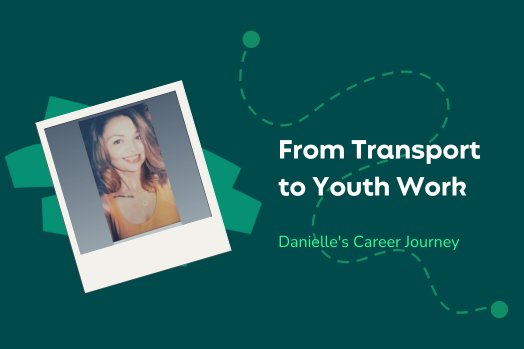
Danielle’s journey into youth work wasn’t a conventional one. Coming from a background in the transport industry, she always had a deep connection to youth services through family friends involved in fostering. After having her youngest child and returning to transport, she felt drawn to a more meaningful career. That’s when she discovered Edmen Community Staffing Solutions. “ I found Edmen to be very supportive and communicative ,” Danielle shares. “ Starting as a Residential Youth Worker, I had no prior experience in the field, but the support I received -especially as a new youth worker - really stuck with me.” Balancing work, study, and family as a mother of three, Danielle appreciated the flexibility that Edmen offered. While completing her Certificate IV in Youth Work, she was able to gain hands-on experience, seamlessly blending theory with practice while working at Edmen’s Community Service partner, DCC. Building a strong foundation with Edmen Danielle credits Edmen for providing a strong safety net during her time as a Residential Youth Worker. “ You always had that support in the background - no judgment, just open communication ,” she explains. One experience, in particular, stood out. “ I had a tough shift where I was struggling, and my Service Coordinator, Dominic, checked in on me while I was on a sleepover shift. That level of care and support really meant a lot.” Beyond emotional support, Edmen’s support and culture helped Danielle build confidence in her abilities. She developed crucial people skills and a broader understanding of the bigger picture in youth support services. “I never once felt inadequate. My team at Edmen -coordinators like Emma, Brooke and Jess - really empowered me to grow .” Stepping into leadership After a year and a half as a Residential Youth Worker with Edmen, Danielle was ready for the next step. She took on a leadership role as a Program Service Leader with DCC. “I now oversee a team of Youth Workers at Gumnut House, ” she says. “ Unlike my previous role, I’m not as ‘hands-on’ with the young people—we have an incredible team on the floor doing that. My focus is ensuring that policies and procedures are followed and that the environment remains therapeutic for both the workers and the young people.” Danielle’s transition into leadership wasn’t without challenges. “ One of the biggest adjustments was separating myself from the youth workers I once worked alongside and setting professional boundaries. But my experience at Edmen gave me the tools to navigate those challenges with confidence.” Lessons learned and carrying them forward Reflecting on her journey, Danielle acknowledges the vital role Edmen played in shaping her career. “ Edmen taught me how to be the best support for my team. The foundations I built there mean that everything comes more naturally to me now,” she explains. Looking to the future While she loves her current role, Danielle has her sights set on future opportunities in the youth services sector. “ Eventually, I could see myself working as a Child Safety Officer or in a support role that helps families before children enter out-of-home care .” She also recognises the evolution of the industry. “ DCC has grown a lot in the past three years, and I see a lot of potential to better connect communities and families. There’s so much scope for positive change.” Advice for aspiring Youth Workers For those considering a career in youth services, Danielle offers some key advice: • Don’t overthink it. “ Take a deep breath - if you have a genuine passion for achieving the best outcomes for young people, you’ll thrive.” • Build a strong foundation. “ Having the right support early on makes all the difference. Edmen was there for me from the very beginning, and that set me up for success.” Your pathway starts with Edmen Danielle’s story is proof that a career with Edmen can be the stepping stone to bigger opportunities in youth work. Whether you’re starting fresh or looking for career growth, Edmen provides the support and flexibility to help you succeed - just like they did for Danielle. Ready to get started? Check out our open Youth Worker roles today.

Across Australia, Early Childhood Educators are at a crossroads. As part of the 2025 Federal Budget announcements, the government has reaffirmed its commitment to supporting the early childhood education sector with targeted funding to address workforce shortages and improve quality of care. This includes $72.4 million to expand professional development and training opportunities, as well as funding to improve retention and upskill educators through nationally recognised qualifications ( Australian Government Budget 2025–26 ). While these investments are a step in the right direction, many educators are still grappling with unsustainable workloads, emotional fatigue and a desire for more meaningful progression in their careers. Many in the industry are still asking the big question: Is this enough to stay? For some, it’s prompting a natural shift toward Youth Work - an area where their passion and skills can be redirected for lasting impact. Why Youth Work? Youth Work is a dynamic, people-first career that allows you to make a lasting impact in the lives of young people navigating complex challenges. It’s purpose-driven, values-led, and built around strong relationships - something Early Childhood Educators are already experts in. At Edmen Community Staffing Solutions, we’re seeing a growing number of early childhood professionals step into Youth Work. And it makes perfect sense. Your skills are more transferrable than you think If you’re an Early Childhood Educator, you already bring so much to the table: Strong behaviour management and emotional regulation strategies Communication skills with both children and families Understanding of child development and trauma-informed practice Patience, empathy, and resilience in emotionally demanding situations Documentation and compliance experience in a regulated environment These are the same core skills that make for an exceptional youth worker. What qualifications do you need? To work as a Youth Support Worker in most settings, you’ll typically need (or be working towards) a Certificate IV in Youth Work, Community Services, or a related field. If you’ve already completed a qualification in Early Childhood, you may be able to fast-track or RPL (Recognised Prior Learning) certain units. Earn while you learn: Edmen’s Kickstart Program If you're curious but unsure whether Youth Work is the right fit, our Kickstart program is designed for people just like you. Kickstart gives you the opportunity to: ✅ Gain real, paid experience in youth residential care ✅ Access mentoring and on-the-job support ✅ Begin working while you start (or complete) your qualification ✅ Connect with a community of passionate youth workers It’s a flexible, supported entry point into the sector- and a great way to test the waters while building your future career. Time for a change? If you're an Early Childhood Educator who still loves working with young people - but craves a new challenge, more meaningful impact, or a different pace - Youth Work could be the change you’ve been looking for. At Edmen, we believe in people-powered change. Let’s help you turn your passion into a new purpose. Ready to explore? Check out our open roles or learn more about Kickstart today.

